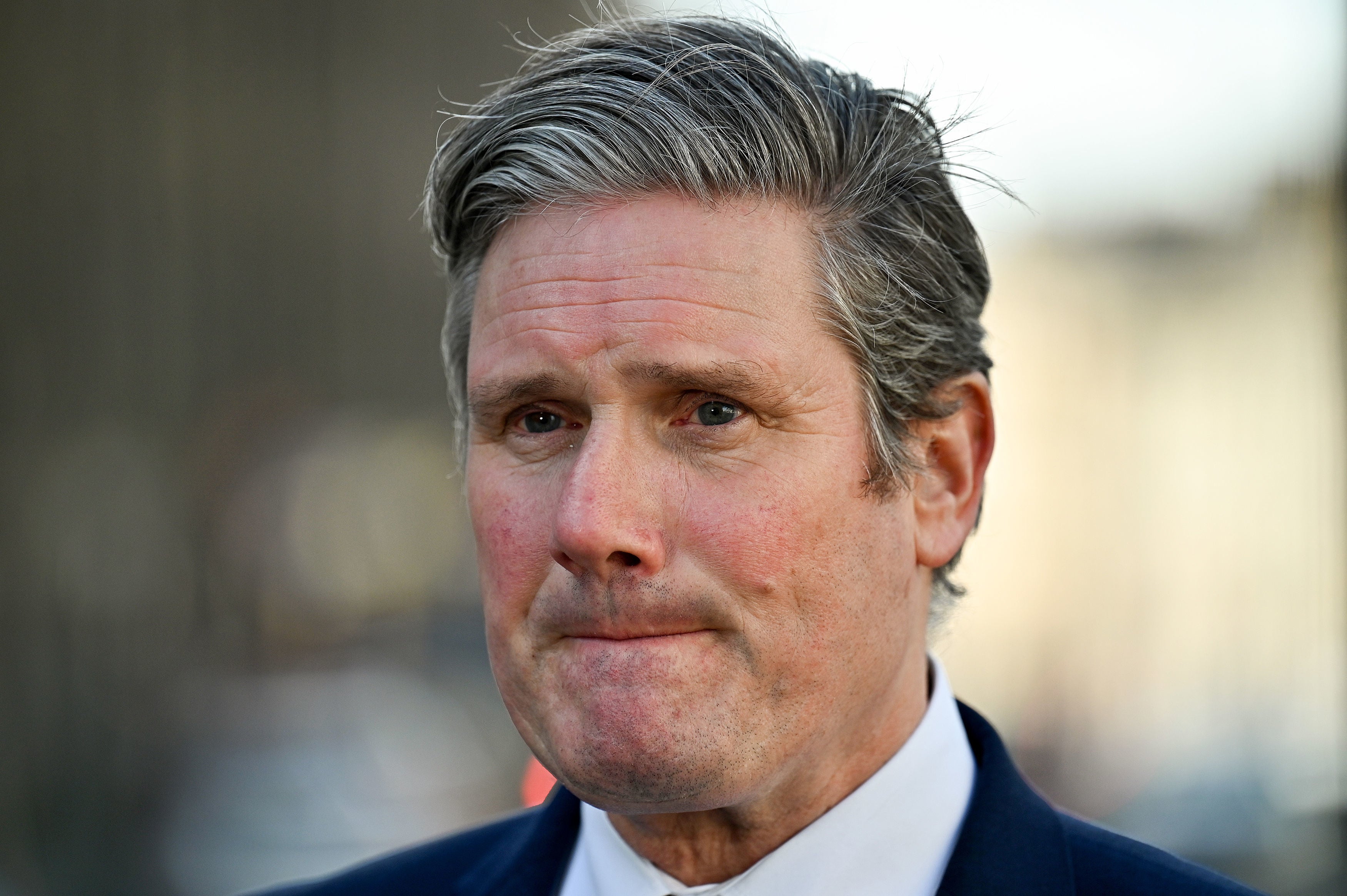What is Keir Starmer’s position on Brexit now?
For how long can the Labour Party hold back from expressing a view on such an important subject, asks John Rentoul


Brexit is the common theme of three of the big political stories today: the resurgence of violence in Northern Ireland; the reduction of trade with the EU; and the agitation in Scotland for another independence referendum. Britain’s departure from the EU is not the sole cause of any of them, but is an important factor in each of them.
Yet Keir Starmer has imposed a self-denying ordinance on the Labour Party, saying that it accepts Brexit and does not even want to renegotiate the Trade and Cooperation Agreement – the treaty that sealed our exit on 1 January.
Louise Haigh, the shadow minister for Northern Ireland, points out that many of the problems there are caused by the protocol in Boris Johnson’s withdrawal agreement, which puts a border in the Irish Sea (though the prime minister insists otherwise) – but she does not advocate tearing up the protocol and starting again. Instead of proposing that the UK should rejoin the EU customs union, for example, the Labour line is that the Brexit treaties should be made to work.
On the wider trade problems caused by new border checks and rules at the Channel crossing, Labour likewise shies away from blaming Brexit, and even from blaming the particular form of Brexit negotiated by Boris Johnson.
Meanwhile on Scotland, Starmer does not say that Nicola Sturgeon is quite right to complain about the country being torn out of the EU against its will. Indeed, Anas Sarwar, the new leader of Scottish Labour, makes a virtue of having no position either on the EU or on demands for a new independence referendum as a result of Brexit, saying he wants to “bring people together”.
In December, Starmer whipped Labour MPs to vote for the Trade and Cooperation Agreement, and 37 of them refused to do so. Alastair Campbell, the New Labour strategist, had advised him not to, saying that it would make it harder for the party to criticise the government when things went wrong.
Labour Party members mostly agree with Campbell and the rebel MPs – indeed they want to go further and rejoin the EU. A YouGov poll of members last month found that 59 per cent of them agreed with the statement: “The Labour Party should campaign to rejoin the EU at some point in the future.”
This tension between the leadership and the members is likely to become acute when the party starts to draw up its policy for the next election. It seems likely that the party will at least argue for a more “constructive” relationship with the EU, as Lisa Nandy, the shadow foreign secretary, did in an article last week. She criticised the Johnson government for being “stuck in a needlessly confrontational cycle with our nearest neighbours in Europe”, even though she said European countries “must respect the UK’s decision to stand outside the EU”.
But Starmer seems determined to avoid being committed to anything that involves renegotiating the Brexit treaties. The danger is that he will be stranded between Johnson, who will accuse him and the Labour Party of wanting to rejoin the EU anyway, and activist Remainers, including most of his members and his MPs, who do indeed want to rejoin and want the party at least to promise a closer relationship with the EU at the next election.
Trouble, in other words, ahead.



Join our commenting forum
Join thought-provoking conversations, follow other Independent readers and see their replies
Comments